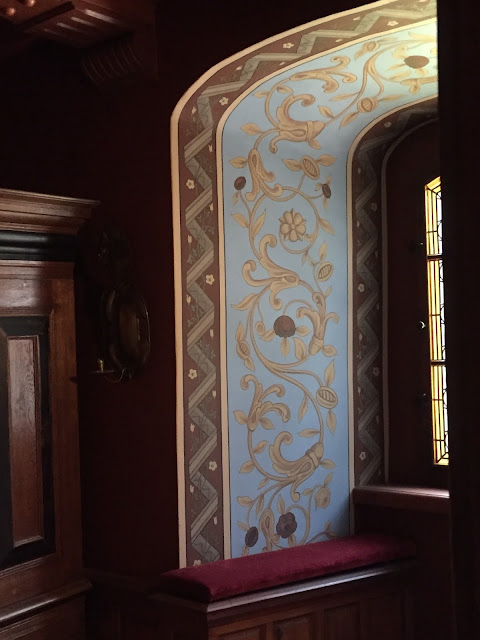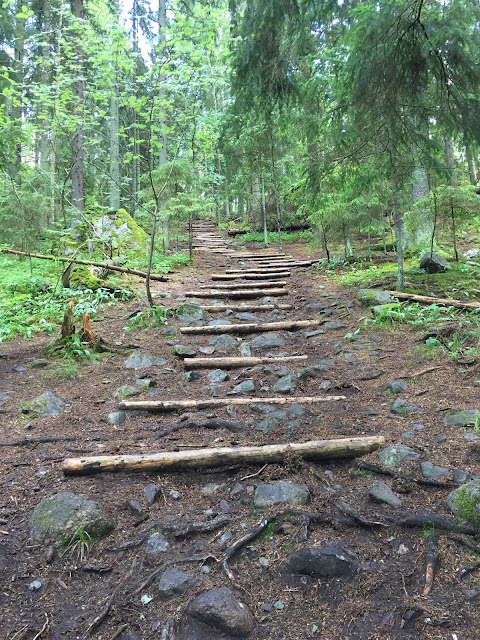From the time I was small my parents made me very aware of the simple 50/50 split in my heritage. Mom was Irish through and through, and Dad's parents had come on the boat from Czechoslovakia (his term) before his birth. My parents left their native East Coast for California shortly after I was born. I did not grow up around extended family, yet Dad's yearning for certain foods (stuffed peppers, pickled pigs feet, buttermilk, and bread slathered with butter) alerted me that he was a square peg in a round hole, as compared to my friends' fathers. Mom talked about her family background, and she had her ethnic foods too: corned beef and cabbage on St. Paddy's day, and potato pancakes with applesauce as often as she could rustle it up. And she made sure we knew the phrase, "Wren, Wren, king of all men," indicating we were descended from the kings of Ireland through our Wren line.
I was always full of questions to relatives about our background, even interviewing my Baba when I was only 15 years old. I officially started family history research when I was 18, and will never forget the exhilaration of locating my immigrant Doyle ancestors on the 1880 Census of Holyoke, Massachusetts.
The paper trail is thrilling, and does have its limits. Given that Ireland suffered under the English for 700+ years, Irish records are sparse, of low quality with limited information, and don't extend back far, at least not compared to English and Continental records. Now that some wonderful Eastern European records are accessible online, I have made extensive progress on that side, yet the challenge in reading multiple foreign languages is daunting at times.
Enter the DNA dimension. In less than ten years it has become a fascinating facet of family history. While a DNA test doesn't give you names, dates, places, it provides several important services: 1) If you go through Ancestry or 23andMe (and perhaps others), your results will connect you with other researchers seeking family members and additional information. 2) The results will show via some super interesting graphics, where in the world your DNA traces to. 3) Depending on the company, you will get some helpful health hints (23andMe provides this). 4) Another benefit of DNA results is they demonstrates that ancestry is much more varied (for many many people) than most of us ever guessed. Doesn't that make a person a little more tolerant, a little more understanding of folks from other places? I think so.
I've been tested through both of the above mentioned companies, 23andMe about six years ago and Ancestry within the past year. My brother, one uncle, and one son have also done the Ancestry DNA test, so they pop up as relatives when I log in to see my results. It's fun to compare each others data, and to find strangers who are not really strangers.
Tomorrow: My own results.

















































